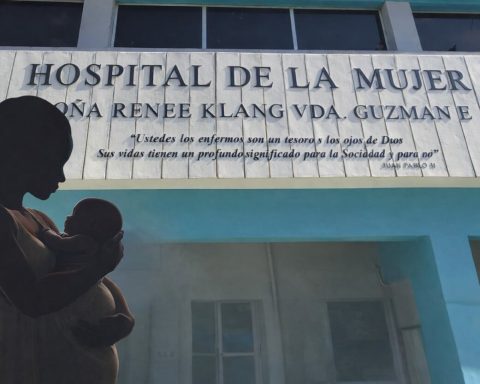As in some Latin American countries, companies supplying digital services abroad they would have to pay through special mechanisms in the Dominican Republic, in this case it would be a rate of 18% for the Tax on Transfers of Industrialized Goods and Services (ITBIS).
This is explained by the General Directorate of Internal Taxes (DGII) in a statement released this Tuesday, in which he seeks to clarify the doubts generated by the call for public discussion on the project entitled “Regulation that regulates the procedure for the application of the Itbis to the digital services captured in the Dominican Republic and that are provided by providers of the outside”.
“They will pay taxes virtually, presenting the ITBIS through a special declaration that must be settled before the 20th of each month,” specifies the DGII about the collection initiative for the use of platforms such as Amazon, Expedia, Google, Netflix, Spotify, DiDi, Uber, Airbnb, Indriveramong others.
Indicates that the digital services that will be subject to ITBIS collection will be online advertising, online intermediation (commission), data transmission, streaming, among others.
In Chile, since June 1, 2020, providers of digital foreign service have the obligation to make declarations of the value added tax (VAT), which is 19%, and they do so through an online system.
Similar mechanisms have been adopted in Argentina and Mexico, in force since 2018; Colombia, since 2019; and Costa Rica, since 2020.
It will not be the user
When in doubt as to whether this tax will be withheld directly from the user in the Dominican Republic, at the time of paying for the digital service, the DGII He answered with a resounding “no”.
“No. The Decree does not establish withholding agents on the consumption of the service to the Dominican user”, it is indicated verbatim in the statement.
In another paragraph of the text, when the question is raised as to whether the tax will be applied when the digital service is contracted or consumed, it is explained that “who is going to pay the ITBIS is the international provider with respect to its intermediation service (commission). This ITBIS may not be passed on or compensated in the Dominican Republic, unless these providers establish a permanent establishment in this country.
This method, applied in most of the countries in Latin America that have approved this tax, is different from that of Ecuador, where 12% VAT is levied directly on users’ credit card payments.
Faced with the doubt as to whether the user will be able to ask these companies for digital services foreign companies that issue an invoice with tax receipt, the DGII states that as long as the international supplier “does not constitute a permanent establishment in the Dominican Republic, it will not be subject to billing formalities decree 254-06 and General Standard 06-21 or any tax document for its operations in Dominican territory.”
The reasons
The DGII dedicates a large part of the statement to explaining the reasons why the Dominican Government seeks to establish the collection of ITBIS from digital services of foreign companies.
“In accordance with the principle of destination, in the case of the Tax on Transfers of Industrialized Goods and Services, when it is levied on the consumption of services and intangible goods subject to international trade, it is designed to ensure that said tax is applied in the tax jurisdiction where the consumption or final uptake, which maintains the neutrality of the system”, explains the agency.
Another reason is the criterion of tax equity. “Dominican companies that perform similar services pay their taxes. In that sense, the DGII It has the obligation to guarantee and facilitate equity in the balanced application of tax laws to guarantee an adequate climate of competitiveness in all economic sectors.”
It also clarifies that these services are not exempt from ITBIS payment, “according to article 344 of the Tax Code; therefore, the provisions of the Tax Code and Regulation No. 293-11 for the Application of Title III of the aforementioned Code are applicable to them”.
After raising answers to doubts and questions about this project, in the statement, the DGII reiterates its call to interested parties to participate in the public consultation regarding this initiative, which began yesterday and will end on March 21, through its web portal.

















